
Africa. A continent of contrasts that many of us encounter in childhood. On the one hand, Nikolai Drozdov, Ivan Zatevakhin and the Animal Planet channel tell us about all kinds of interesting animals, and Discovery shows beautiful views of all kinds of Kilimanjaro volcanoes and Victoria Falls. On the other hand, “Don't go for a walk in Africa” mixed with horrors from mothers and grandmothers, motivating eating tasteless porridge by mentioning starving African children. And the older we get, the more it is not rivers of this width and mountains of such height that come to the fore, but different kinds of Barmaley. Moreover, most often they are a fierce mixture of scraps of news reports, the remnants of a weak three in geography at school and some wild tales from yellow newspapers and the same color of sites. Eventually,the entire continent is perceived as a mess of civil wars, starving children, military coups, epidemics and cannibalism. It is very similar, by the way, to the widespread perception of the Middle Ages. It's just that one was long ago, and the other is now, but far away. Not to say that there was a particular shortage of all the listed charms, but still it does not happen everywhere and not always, but in places and from time to time. And somewhere more often, but somewhere almost never. Here's why this is happening, and will go.And somewhere more often, but somewhere almost never. This is why this is happening, and will be discussed.And somewhere more often, but somewhere almost never. Here's why this is happening, and will go.
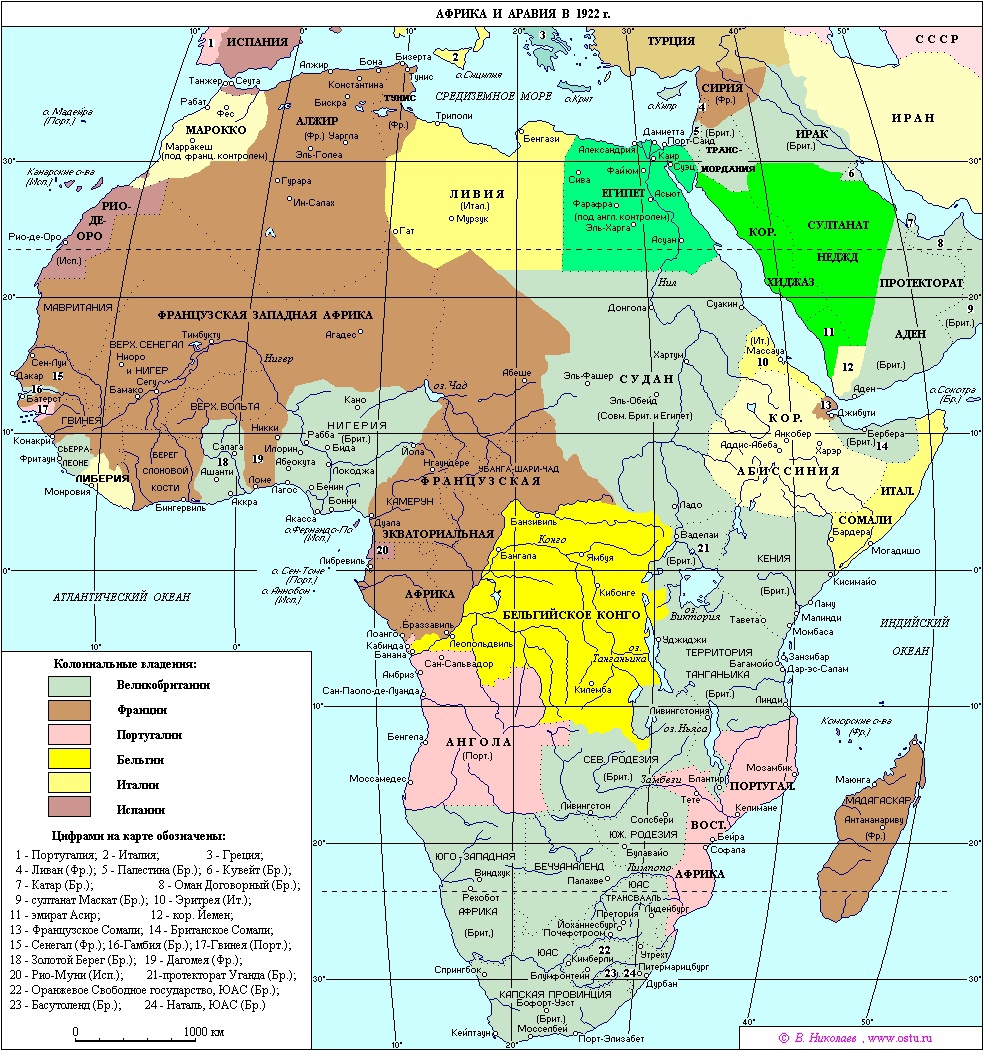
I think most are familiar with the map of the colonial division of Africa from the school textbook. Contour of the continent, painted in different colors, each of which corresponds to the possessions of one of the European powers. Did this color differentiation of pants have any impact on the modern life of these territories? Or was the whole difference in the style of the white gentleman's hats? It turned out, and the most direct one. Of course, one immediately remembers the preservation of economic ties with the former metropolis, the neo-colonial domination of Western corporations, and linguistic ties. These are all extremely important factors, behind which another, less obvious one is often hidden - the influence of the colonialists on the formation of the ruling elites and the administrative apparatus. Which was different for all the main colonizers.In many ways, it was this that determined the further fate of many countries - they remained islands of stability, or their independence turned into a series of troubles and failures.
Let's start with England, of course. To begin with, one important feature is that all decorum must be observed. Therefore, all important points have always been neatly legalized. The seizure of territory is an agreement with local rulers on the purchase and sale or transfer of land. War - necessarily with a peace treaty at the end, securing territorial gains. And everything is in this spirit. And no one can say that British colonialism was illegal. Everything was completely in accordance with the laws. The laws of Great Britain, of course. The second feature of the English colonial model is the retention of local elites. The British colonial administration did not replace the existing system, but rose above it. A connecting administrative layer was created, and for the most part - from representatives of local peoples. Most often, not the most numerous.Local rulers retained their status, which was clearly spelled out in those very impeccably drawn up treaties. Yes, in Africa this usually did not reach the Indian subtleties, where each ruler was prescribed a clearly defined number of salute salutes, but the rights and obligations of the parties were also indicated. Simply put - a large number of serious management functions were delegated to the local. Without this, the functioning of the British colonial empire would have been impossible simply due to the relatively small population of the metropolis.but also the rights and obligations of the parties were designated. Simply put - a large number of serious management functions were delegated to the local. Without this, the functioning of the British colonial empire would have been impossible simply due to the relatively small population of the metropolis.but also the rights and obligations of the parties were designated. Simply put - a large number of serious management functions were delegated to the local. Without this, the functioning of the British colonial empire would have been impossible simply due to the relatively small population of the metropolis.
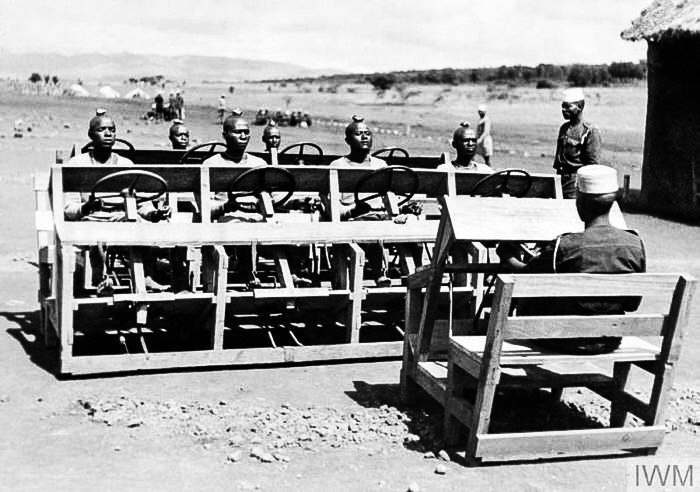
. , 1943 .
The most important advantage of this system was that for its functioning it required a serious infrastructure. Local administrations needed educated people, and by British standards. This means that we need to build schools, and a lot. An educated population is expensive, it needs to be treated, which means hospitals are needed. Etc. Transport, culture, production, trade were tightened up. It is clear that this did not apply to the entire population, but the stratum of educated people turned out to be considerable. Taking into account local administrators, the English-speaking states could function quite successfully immediately after gaining independence. Which, of course, also had to happen decently. An indispensable attribute of the British leaving the colonies was the elections held before that. Yes, it was often sheer fiction,because a small part of the population could vote or the candidates could be poorly known to the people, but nevertheless the ritual was observed. Former colonialists could always claim that they did not just slam the door, but transferred power to the elected government. In principle, the tradition is preserved. None, but elections in English-speaking African countries usually take place. Even with a predetermined result.
The main problem of the British colonies was their size. Huge territories, the administrative division of which took place without taking into account local peculiarities, purely based on the political and administrative interests of the colonialists. Under the canopy of the British crown, it did not constitute a particular problem, but after independence, peoples often found themselves together who did not tolerate each other well. All old grievances, multiplied by new economic interests, immediately got out. A textbook example is Nigeria with its Biafra separatists. Oil is located on the territory of some peoples, power belongs to others, money, of course, is divided as beneficial to the center. And this is not yet taking into account the religious factor of the multilateral conflict between Christians, Muslims and animists.
France went the other way. Unlike the British, the French had smaller colonies, more of them themselves, and most of the possessions were more or less grouped in one part of the continent. The French preferred a full-fledged formation of comprador elites to a simple integration of the local nobility into their system of government. Many Africans of outstanding ability or origin went to study in France. There they fell under the powerful pressure of the French cultural environment. We talked with students at school, drank coffee during the day on summer verandas, and in the evening - rum and absinthe in cafes, went to theaters and the opera, discovered the fun world of Parisian variety shows. And it was very, very difficult to resist this influence. So, generation after generation in the French colonies, a stratum of influential people was formed,for whom real independence from France seemed the worst prospect. Because it would excommunicate them from a culture that has essentially become their own. At the same time, the French did not hesitate to appoint locals to very serious administrative positions, especially after the First World War, when they had a shortage of an educated male population, which was also needed in the metropolis. Even among the colonial deputies to the National Assembly, black deputies were not uncommon. Accordingly, the administrations of the colonies were usually of a mixed nature, they included both French and representatives of local peoples. Like the British, this required serious infrastructure development in the colonies. First of all, education - for the formation of those very comprador elites, an educated stratum of the population was needed.Because it would excommunicate them from a culture that has essentially become their own. At the same time, the French did not hesitate to appoint locals to very serious administrative positions, especially after the First World War, when they had a shortage of an educated male population, which was also needed in the metropolis. Even among the colonial deputies to the National Assembly, black deputies were not uncommon. Accordingly, the administrations of the colonies were usually of a mixed nature, they included both the French and representatives of local peoples. Like the British, this required serious infrastructure development in the colonies. First of all, education - for the formation of those very comprador elites, an educated stratum of the population was needed.Because it would excommunicate them from a culture that has essentially become their own. At the same time, the French did not hesitate to appoint locals to very serious administrative positions, especially after the First World War, when they had a shortage of an educated male population, which was also needed in the metropolis. Even among the colonial deputies to the National Assembly, black deputies were not uncommon. Accordingly, the administrations of the colonies were usually of a mixed nature, they included both French and representatives of local peoples. Like the British, this required serious infrastructure development in the colonies. First of all, education - for the formation of those very comprador elites, an educated stratum of the population was needed.At the same time, the French did not hesitate to appoint locals to very serious administrative positions, especially after the First World War, when they had a shortage of an educated male population, which was also needed in the metropolis. Even among the colonial deputies to the National Assembly, black deputies were not uncommon. Accordingly, the administrations of the colonies were usually of a mixed nature, they included both French and representatives of local peoples. Like the British, this required serious infrastructure development in the colonies. First of all, education - for the formation of those very comprador elites, an educated stratum of the population was needed.At the same time, the French did not hesitate to appoint locals to very serious administrative positions, especially after the First World War, when they had a shortage of an educated male population, which was also needed in the metropolis. Even among the colonial deputies to the National Assembly, black deputies were not uncommon. Accordingly, the administrations of the colonies were usually of a mixed nature, they included both French and representatives of local peoples. Like the British, this required serious infrastructure development in the colonies. First of all, education - for the formation of those very comprador elites, an educated stratum of the population was needed.Even among the colonial deputies to the National Assembly, black deputies were not uncommon. Accordingly, the administrations of the colonies were usually of a mixed nature, they included both French and representatives of local peoples. Like the British, this required serious infrastructure development in the colonies. First of all, education - for the formation of those very comprador elites, an educated stratum of the population was needed.Even among the colonial deputies to the National Assembly, black deputies were not uncommon. Accordingly, the administrations of the colonies were usually of a mixed nature, they included both French and representatives of local peoples. Like the British, this required serious infrastructure development in the colonies. First of all, education - for the formation of those very comprador elites, an educated stratum of the population was needed.
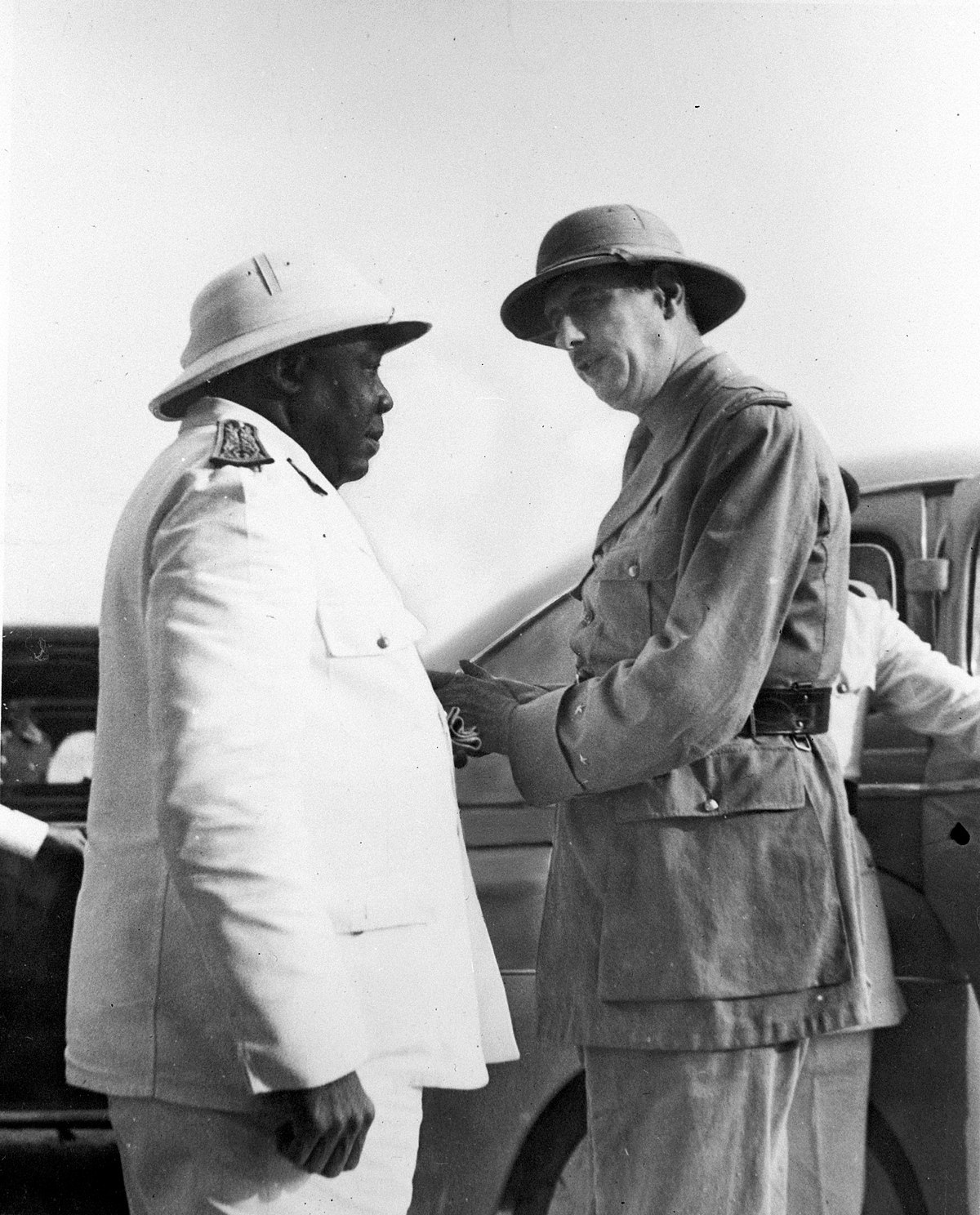
-
But decolonization here went the other way. Despite the receipt of the status of independent states, most of the French colonies essentially did not receive any independence. Their elites are educated in the same way in French universities. Most of the valuable assets belong to French corporations. On their territory there are French military bases, usually located in accordance with interstate treaties on security guarantees and the like. A significant part of the former French colonies use a single currency, are members of customs and postal unions. And, of course, the former colonies are part of the Francophonie, an organization of Francophone countries that serves as conductors of French cultural, political and economic influence. As a result, the former colonies are in serious dependence on the former metropolis.The downside of this is the containment of the growth rates of the economies of these countries in those moments when it is not beneficial to France. Plus - relative stability. France monitors its charges, does not allow military coups (unless, of course, they were agreed in Paris) and civil wars, since they interfere with the interests of business. At the same time, he does not hesitate to regularly use the armed forces to maintain his influence.
A completely different situation developed in the colonies of Portugal. Here we should start with the fact that the Portuguese began serious colonization much earlier, since the 16th century. While most countries had only trading posts on the coast, Portugal already had extensive holdings in what is now Angola and Mozambique. The local nobility was christened, given Christian names and Portuguese titles, but over time, she simply disappeared into the European environment. There was no particular need to involve the locals in management - the Portuguese colonies had a large white population. Up to such a phenomenon as unique for Tropical Africa as white slums in large cities. Respectively,the percentage of the educated black population was scanty and more or less began to grow only in the 50s of the twentieth century on the general wave of softening of the order on the continent. The second important point is that, unlike the peaceful options of England and France (I do not take into account the Algerian war, there were special circumstances), the gaining of independence by the Portuguese colonies resulted in a long and fierce Overseas War, during which a peculiar situation developed. On the one hand, the Portuguese still formed a certain layer of the westernized elite of administrators and commanders of black units, on the other hand, the Soviet Union managed to train and train a significant number of various kinds of specialists for these countries. Plus, China has contributed. As a result, after gaining independence in the former Portuguese colonies there was a stratum of the population,initially dissatisfied with the current situation and having a desire to change it. What did not fail to take advantage of South Africa and, to a lesser extent, Southern Rhodesia. They did not need large and strong states with an orientation towards the USSR at their side. A little support for the rebel groups, plus the addition of raids by their troops - and Angola and Mozambique instantly fall into a series of protracted civil wars. They either fade or flare up with renewed vigor, but on the whole, both countries can hardly be called stable.plus add raids by your own troops - and Angola and Mozambique instantly fall into a series of protracted civil wars. They either fade or flare up with renewed vigor, but on the whole, both countries can hardly be called stable.plus add raids by your own troops - and Angola and Mozambique instantly fall into a series of protracted civil wars. They either fade or flare up with renewed vigor, but on the whole, both countries can hardly be called stable.
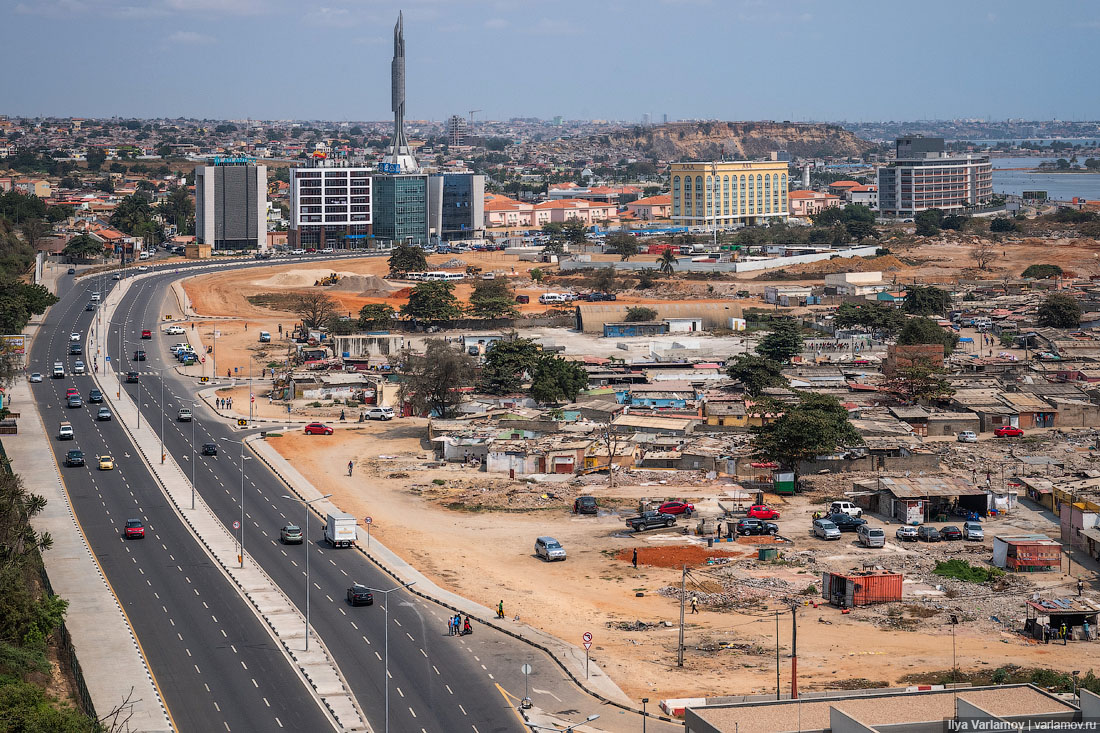
Well, for sweets - some of the main confectioners in Europe, glorious for waffles and chocolate. Of course, this is Belgium. Surely most have heard about the terrible events that took place in the personal possession of the Belgian king Leopold II - Congo. The scale of the lawlessness perpetrated went beyond all the bounds of decency, even by the standards of the European society of the beginning of the 20th century, which was quite tolerant of such things. In general, a scandal erupted, the Congo was nominally withdrawn from Leopold, and the ownership passed directly under the control of Belgium as a state. True, nothing has changed much. The colonial administration was absolutely primitive. In fact, it was a network of trading posts that performed logistic functions. They brought the products of plantations and extracted minerals, then all this was sent to ocean ports and further to the metropolis.Order was maintained by the Belgian colonial forces, which consisted of black soldiers under the command of white officers. On the ground, there were armed detachments of private contractors with a similar structure. That, in fact, is all. The Belgians had no interest at all in the development of some serious infrastructure. If you recall the common cliché about the robbery of colonies - here it corresponded to reality.
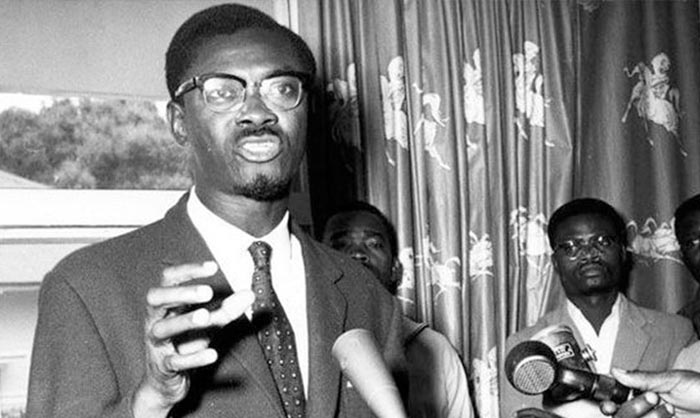
, — -
At least some educated blacks in the Belgian colonies appeared only in the last one and a half to two decades. And then, in fact, the limit for the locals was the level of a sergeant or a petty clerk. Therefore, when the Belgians began to collect their belongings, such pillars as the telegraph operator Patrice Lumumba, the elementary school teacher Pierre Moulele, the colonial sergeant Joseph-Desiree Mobutu and the already solid accountant Joseph Kasavubu came together in a fierce battle for power. The sergeant won. However, this was only the beginning. Throughout the history of its independence, Congo suffered from wars, coups and invasions, in which it was periodically helped by two other Belgian ex-colonies - Rwanda and Burundi. They, too, have suffered greatly from Belgian irresponsibility. So the Belgians deservedly receive the title of the worst colonialists in Africa. Maybe,the Germans could compete with them in this, the makings were serious, but they were quickly thrown out of Africa.
Such interesting moments are hidden from us by a multi-colored map of African colonies. How different European colonialism, perceived as a whole, turns out to be. And how different was his influence on different countries of this continent.
Author: Roman Voronov
Macleod VPS servers are fast and secure.
Register using the link above or by clicking on the banner and get a 10% discount for the first month of renting a server of any configuration!
